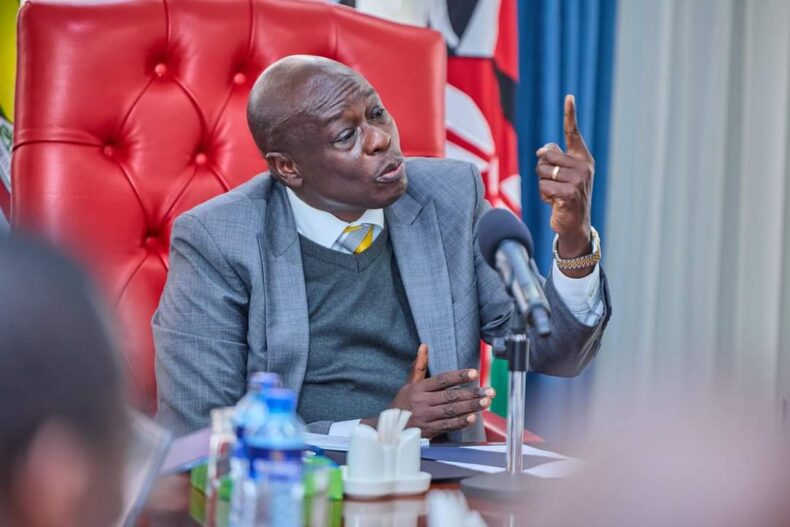Impeached Deputy President Rigathi Gachagua is now under fresh scrutiny following revelations that his office grew from 145 to 683 staffers over two years.
The dramatic expansion, disclosed by blogger Cyprian Nyakundi, highlights a previously hidden restructuring spree during Gachagua’s tenure.

Impeached DP Gachagua reads the bible during a past church service. Photo: Rigathi Gachagua Source: Facebook
According to a Facebook post by Nyakundi, Gachagua had inherited a modest team of advisors and technical staff but seized the opportunity to overhaul the structure when some staff, like Anthony Kibagendi and John Chikati, moved into political roles.
This shift paved the way for what is now being seen as unchecked staff growth under the guise of operational reforms.
In April 2023, the Public Service Commission (PSC) approved 56 new hires, pushing the headcount to 683. New advisory positions in trade, education, and economic strategy were created, while supernumerary roles shot up from 11 under the previous administration to 39.
Nyakundi further revealed that Gachagua assigned 87 staff to support his spouse’s activities, a stark contrast to previous administrations.

Deputy President Hon Rigathi Gachagua during Karen meeting on August 26. Photo: Rigathi Gachagua Source: Facebook
He also added a communications team of 35 personnel, where none had existed before, alongside a seven-member video production unit to enhance media presence and public outreach.
Previously absent departments, such as a legal services unit staffed with state counsels and technical experts like architects and engineers, were introduced.
PSC also approved promotions across hospitality and healthcare roles, reflecting the scale of the office’s expansion.

DP. Gachagua speaking during Njoro tour on August 17
Sector-specific teams were established to oversee key initiatives, including reforms in the coffee, tea, and dairy industries, along with the formation of the North Eastern Development Initiative (NEDI).
Additionally, a Political Affairs Unit comprising 11 staff was set up to bolster political engagement and governance matters.
With Gachagua now out of office, Nyakundi’s exposé sheds light on the behind-the-scenes expansion, sparking public outrage over the extravagant restructuring.
Many Kenyans are questioning whether the bloated workforce was meant to secure political influence rather than enhance service delivery.



